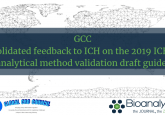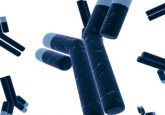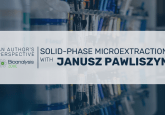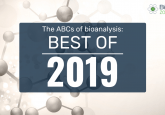Black History Month: an interview with Lauren Bailey
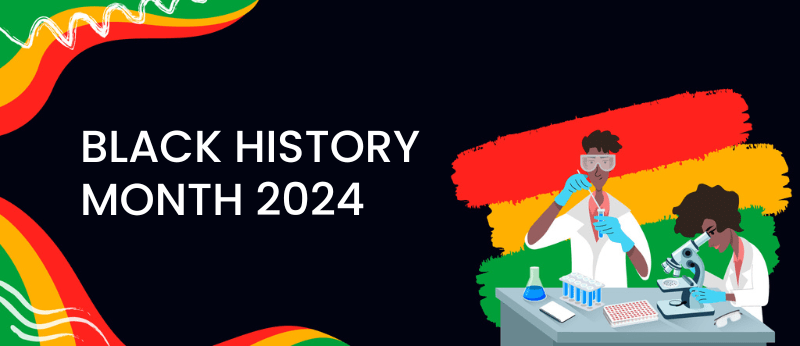
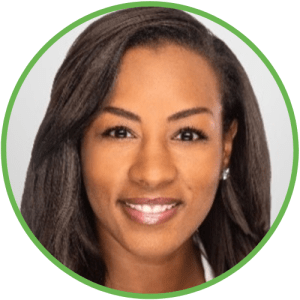 Lauren Bailey
Lauren Bailey
Associate Director
Moderna (PA, USA)
Laurèn D. Bailey obtained a Bachelor of Science degree in Chemistry from Saint Joseph’s University and then a PhD in Biochemistry from Drexel University College of Medicine, both in Philadelphia (PA, USA). Upon completing her graduate studies, she worked as a research scientist at Arbutus BioPharma (PA, USA) where she gained expertise in primary compound screening, lead optimization, mechanism of action and drug combination assays to support preclinical research for hepatitis B drug discovery. Later, she moved on to Merck (PA, USA) where she led a team of scientists responsible for validating and executing bioanalytical cell-based clinical assays for oncology vaccines. In her current role at Moderna (PA, USA), she is the Associate Director of Clinical Assays and Supply Logistics, where she leads the biomarker clinical strategy for infectious disease therapeutics ranging from phase 1 to phase 3. She is a versatile virologist with hands-on experience leading ongoing research initiatives ranging from hepatitis B, HIV, a portfolio of respiratory viruses and oncolytic virology in addition to managing relationships with external vendors and CROs.
1. Please tell us about yourself and how you got to where you are today
I grew up in the suburbs of Philadelphia and was raised by a single Mother who was a registered nurse. My Mother was always resolute on the importance of education. At an early age it was clear that I had a curiosity for science, therefore my Mom found ways to keep me engaged by entering me into school science fairs. As I entered high school, my Mother became disabled and was informed she would never work again, therefore in addition to being a student I also became my Mother’s caregiver and learned to manage the household duties like cooking, grocery shopping and paying bills. I still had my mind on a career in medicine and I knew that this was a career that would require a lot of time and dedication, but I was determined. I learned to manage my time wisely to find time for my new responsibilities along with maintaining honor roll grades and working.
After finishing high school, I continued living at home while commuting to campus at Saint Joseph’s University. Many days were extremely tiring due to balancing caring for my Mother, working and studying for challenging courses like organic and physical chemistry. However, when I did complete my degree 4 years later, I knew that if I could accomplish all that life had thrown my way thus far, I could do anything.
Next, I decided that I would pursue a PhD, however my next step was not going directly to graduate school. I decided to take a gap year to ‘catch my breath’, so I worked for a year as a quality control chemist at a generic pharmaceutical company. The year I spent working after college allowed me to take my time studying and applying for graduate programs. This time also reaffirmed that the lab was where I wanted to spend my career, specifically in the pharmaceutical industry. Upon entering graduate school, I was intent on gaining expertise in areas that would make me a valuable scientist upon graduation. As a chemist, I knew that I wanted to have more versatility, so I learned skills like virus production, aseptic technique, infection assays and protein production. After completing my PhD in Biochemistry, I accepted a position at a biotech company and the rest is history. In my career, I have found it an asset to be able to draw from my chemistry and biological background, which has allowed me to seamlessly transition across several roles.
Lastly, I would not be where I am today if it were not for the struggles I endured to get to my current position. Life is not always a straight road for everyone, some people have turns and exits before reaching their destination.
2. What does your role involve at Moderna?
At Moderna I am responsible for delivering the assay strategy to support clinical trial endpoints in our infectious disease group. This entails clinical assay development, optimization and validation to assess immunogenicity of vaccine candidates, however it is also an extremely interdisciplinary role. I interface with external clients, research scientists, data management, in addition to clinical operations to ensure transparency across all functions to support our timelines and deliverables.
3. What motivated you to pursue the career you are in now?
I always knew that I would have a career in science and initially I intended to pursue a career in medicine because I wanted to make a difference in the lives of patients. As a chemistry major at Saint Joseph’s University, we were required to take a research course in our senior year where we spent a minimum of 10 hours a week in the laboratory researching under the guidance of a research professor. This immersion in the laboratory and ownership of a project that was solely mine, was where I realized that my career path would be research-based. I decided to pursue my PhD in Biochemistry, which ultimately led me to synthesizing and understanding the mechanism of action of HIV inhibitors, and subsequently led me to a field where I gained expertise in virology. This expertise now allows me to contribute to the development of novel therapies, thereby enabling me to make a difference in the lives of patients, which was always my end goal.
4. Are there any key resources or places where you found support when facing challenges in your career?
I have been very lucky to have had mentors throughout my career when I faced challenges. Often people think of a mentor as having a formal relationship with someone who gives specific guidance and provides lessons on career-related topics. This is often the case; however, a mentor can be as simple as someone who is an ally for your career. In my case, I have had senior-level colleagues and professors who took their time to advocate for my learning, growth, career advancement and were also available for advice when needed.
5. What is your greatest achievement?
My greatest achievement is that I have been able to realize my childhood dreams of using science to transform lives, I am truly thankful that I can enact this through translational medicine. On paper, someone from my background isn’t expected to have accomplished all that I have, especially a doctorate degree. I feel fortunate that I have had the support of my family and self-discipline to keep going even when it was difficult to see the end goal in sight.
6. What advice would you give to young Black scientists to help them thrive in the scientific field?
My first piece of advice to young Black scientists would be to begin planning early on in high school if you already have an interest in the scientific field. For example, I knew that I would pursue a career in science so I chose advanced placement science and math classes because some of these classes can transfer for college credits and at the very least will help prepare you for college material. Secondly, I suggest blocking out the negativity from people who doubt your abilities. I heard many people say that being a doctor takes too many years and most students fail college-level science classes, so I was just wasting time. I decided that I would only allow people who were supportive of my endeavors to have access to my life. Lastly, maintain your relentlessness. The reason I have gotten where I am today is because of my discipline to for learning, there was never any other option for me besides science. I know that there will always be someone smarter than me, but with dedication I can achieve anything.

